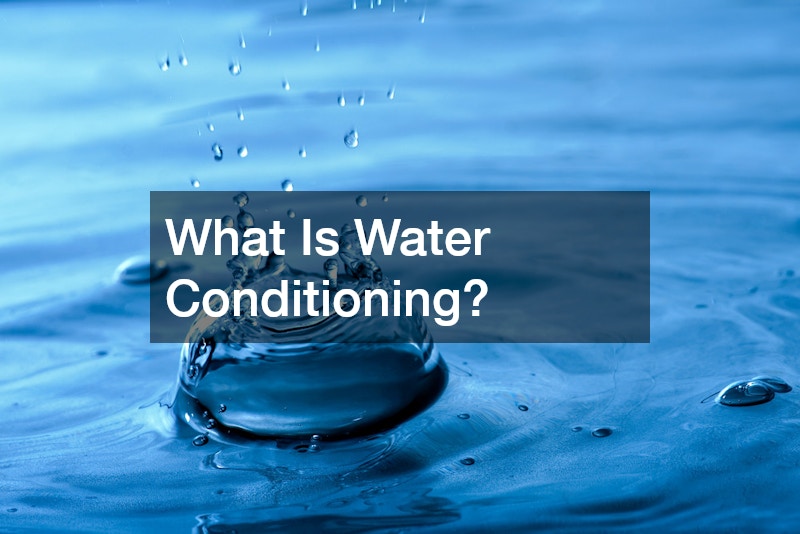
Water conditioning is a process that treats water to improve its quality and make it safer, healthier, and more pleasant for use in homes, businesses, and industrial settings. The term encompasses various methods designed to address common water issues, including hardness, contamination, odor, taste, and sediment. While many people think of water conditioning as simply softening water, the process involves much more and is an essential component of modern water treatment systems.
In this article, we’ll explore what water conditioning is, how it works, and why it’s important for both health and convenience.
Understanding Water Hardness
One of the most common issues addressed by water conditioning is hardness. Water is considered “hard” when it contains high levels of minerals, primarily calcium and magnesium.
While these minerals are not harmful to human health, they can cause problems for plumbing systems, appliances, and even personal hygiene.
Hard water can lead to scale buildup in pipes and water heaters, reducing efficiency and causing potential damage over time. This scaling can also reduce the lifespan of household appliances, such as dishwashers, washing machines, and coffee makers. Additionally, hard water can leave spots on dishes and glassware, dull the appearance of clothing, and make it more difficult for soap to lather, leaving residue on skin and hair.
Water conditioning is specifically designed to address these issues by either removing or altering the mineral content of the water, making it more suitable for everyday use.
How Does Water Conditioning Work?
There are different types of water conditioning systems, each using various technologies to treat water. The most common methods include ion exchange, reverse osmosis, carbon filtration, and electromagnetic treatment.
Ion Exchange
Ion exchange is perhaps the most well-known water conditioning method and is the technology used in traditional water softeners. In this process, water passes through a tank filled with resin beads that are charged with sodium or potassium ions. As hard water flows through the system, the calcium and magnesium ions responsible for water hardness are exchanged for sodium or potassium ions, effectively softening the water.
Ion exchange systems are highly effective at removing hardness, but they do add a small amount of sodium to the water, which may be a concern for people on low-sodium diets.
Reverse Osmosis
Reverse osmosis (RO) is another popular water conditioning method that removes not only hardness but also contaminants such as bacteria, lead, chlorine, and other impurities. This process forces water through a semi-permeable membrane that filters out particles and unwanted chemicals. The result is clean, high-quality water that is ideal for drinking and cooking.
Reverse osmosis systems are often used in conjunction with other types of water conditioning to provide comprehensive treatment. However, they tend to produce a significant amount of wastewater, which can be a concern for those looking to minimize their environmental footprint.
Carbon Filtration
Carbon filtration is a method used to improve the taste, smell, and overall quality of water by removing chlorine, sediment, and volatile organic compounds (VOCs). This type of filtration involves water passing through activated carbon, which acts as a magnet for impurities.
Carbon filters are commonly found in refrigerator water dispensers, faucet filters, and whole-house systems. They are not as effective as other methods at removing hardness, but they are excellent at enhancing the taste and odor of water.
Electromagnetic Treatment
Electromagnetic or electronic water conditioners work by applying a magnetic field to the water as it flows through a pipe. This changes the structure of the minerals in the water, making it harder for them to form scale on pipes and appliances. Unlike ion exchange systems, electromagnetic treatment does not remove minerals from the water, but rather alters their behavior, reducing the likelihood of buildup.
This type of water conditioning is often marketed as an eco-friendly alternative to traditional softening systems because it doesn’t require the use of chemicals or salt.
Why Is Water Conditioning Important?
Water conditioning plays a crucial role in maintaining the quality of water in both residential and commercial settings. The benefits of water conditioning go beyond just softer water; it also contributes to healthier, cleaner, and more efficient water systems.
Watch the video above to learn more and call WC&P today!.





